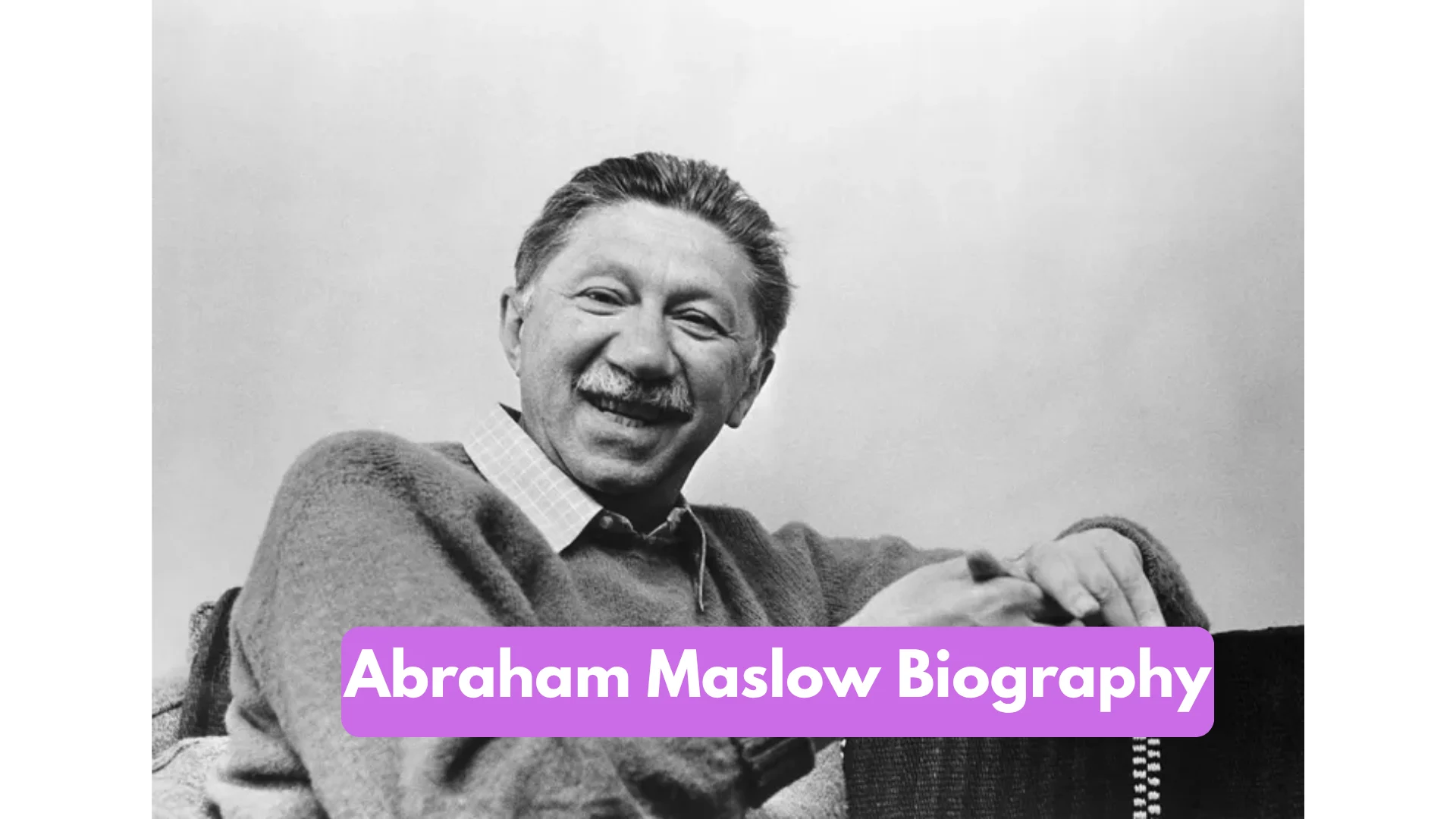Abraham Harold Maslow (1908–1970) was an American psychologist best known for creating Maslow’s Hierarchy of Needs, a theory of psychological health that emphasized human motivation and personal growth.
His pioneering work in humanistic psychology reshaped the field of psychology, focusing on the positive potential of individuals rather than their psychological problems.
Profile Data
- Full Name: Abraham Harold Maslow
- Born: April 1, 1908
- Age: Died on June 8, 1970 (aged 62)
- Birthplace: Brooklyn, New York, United States
- Nationality: American
- Occupation: Psychologist, Professor, Author
- Religion: Jewish (by family background)
- Parents: Samuel Maslow (father), Rose Maslow (mother)
- Siblings: Six younger siblings
- Spouse: Bertha Goodman (m. 1928)
- Children: Two daughters

Early Life and Education
Abraham Maslow was born on April 1, 1908, in Brooklyn, New York, to immigrant parents from Ukraine. As the eldest of seven children, he grew up in a challenging environment. His father pushed him toward academic success, and despite early struggles, Maslow developed a passion for reading and education.
Maslow initially studied law at the City College of New York but later shifted his focus to psychology. He transferred to the University of Wisconsin, where he studied under renowned psychologist Harry Harlow. He earned his Ph.D. in psychology in 1934.
Career and Academic Work
Maslow taught at Brooklyn College and later at Brandeis University, where he developed many of his groundbreaking theories. Unlike many psychologists of his time, who focused on pathology and abnormal behavior, Maslow emphasized personal development, well-being, and creativity.
He believed psychology should study the best in human beings—those who achieved greatness, creativity, and fulfillment.
Maslow’s Hierarchy of Needs
Maslow’s most famous contribution is the Hierarchy of Needs, introduced in his 1943 paper “A Theory of Human Motivation.”
The hierarchy is usually presented as a pyramid with five levels:
- Physiological Needs – food, water, shelter, sleep.
- Safety Needs – security, stability, health, employment.
- Love and Belongingness Needs – relationships, friendships, intimacy.
- Esteem Needs – recognition, respect, confidence, achievement.
- Self-Actualization – personal growth, creativity, fulfilling one’s potential.
Later, Maslow expanded the model to include self-transcendence, which emphasizes helping others and connecting with a greater purpose.
Contributions to Psychology
Maslow is often called the Father of Humanistic Psychology. His approach balanced the rigid theories of behaviorism and psychoanalysis by promoting the human capacity for growth, love, and creativity.
Key contributions include:
- Promoting positive psychology before the field officially existed.
- Inspiring motivation theories in education, business, and leadership.
- Shaping counseling and therapy practices with a focus on personal strengths.
Personal Life
Maslow married Bertha Goodman, his cousin, in 1928, and together they had two daughters. Despite facing health challenges later in life, including heart problems, he continued his research and writing.
Death and Legacy
Abraham Maslow died on June 8, 1970, at the age of 62 from a heart attack. His legacy continues to influence psychology, education, management, and leadership studies worldwide.
Maslow’s Hierarchy of Needs remains one of the most recognized psychological theories, often applied in diverse fields from marketing to self-improvement.
FAQs about Abraham Maslow
1. Who was Abraham Maslow?
Abraham Maslow was an American psychologist best known for his Hierarchy of Needs theory and his role in developing humanistic psychology.
2. What is Maslow’s Hierarchy of Needs?
It is a motivational theory outlining five levels of human needs, from basic survival needs to self-actualization.
3. What is Abraham Maslow known for?
He is known for emphasizing personal growth, creativity, and human potential rather than focusing only on psychological disorders.
4. When was Abraham Maslow born and when did he die?
He was born on April 1, 1908, and died on June 8, 1970.
5. What is Maslow’s impact on psychology today?
His work continues to inspire fields such as education, management, leadership, counseling, and motivation theories.
Conclusion
Abraham Maslow revolutionized psychology by shifting the focus from mental illness to human strengths, growth, and fulfillment. His Hierarchy of Needs remains one of the most influential theories in psychology and beyond.
Maslow’s vision of human potential continues to inspire individuals and professionals seeking a deeper understanding of motivation and self-actualization.
